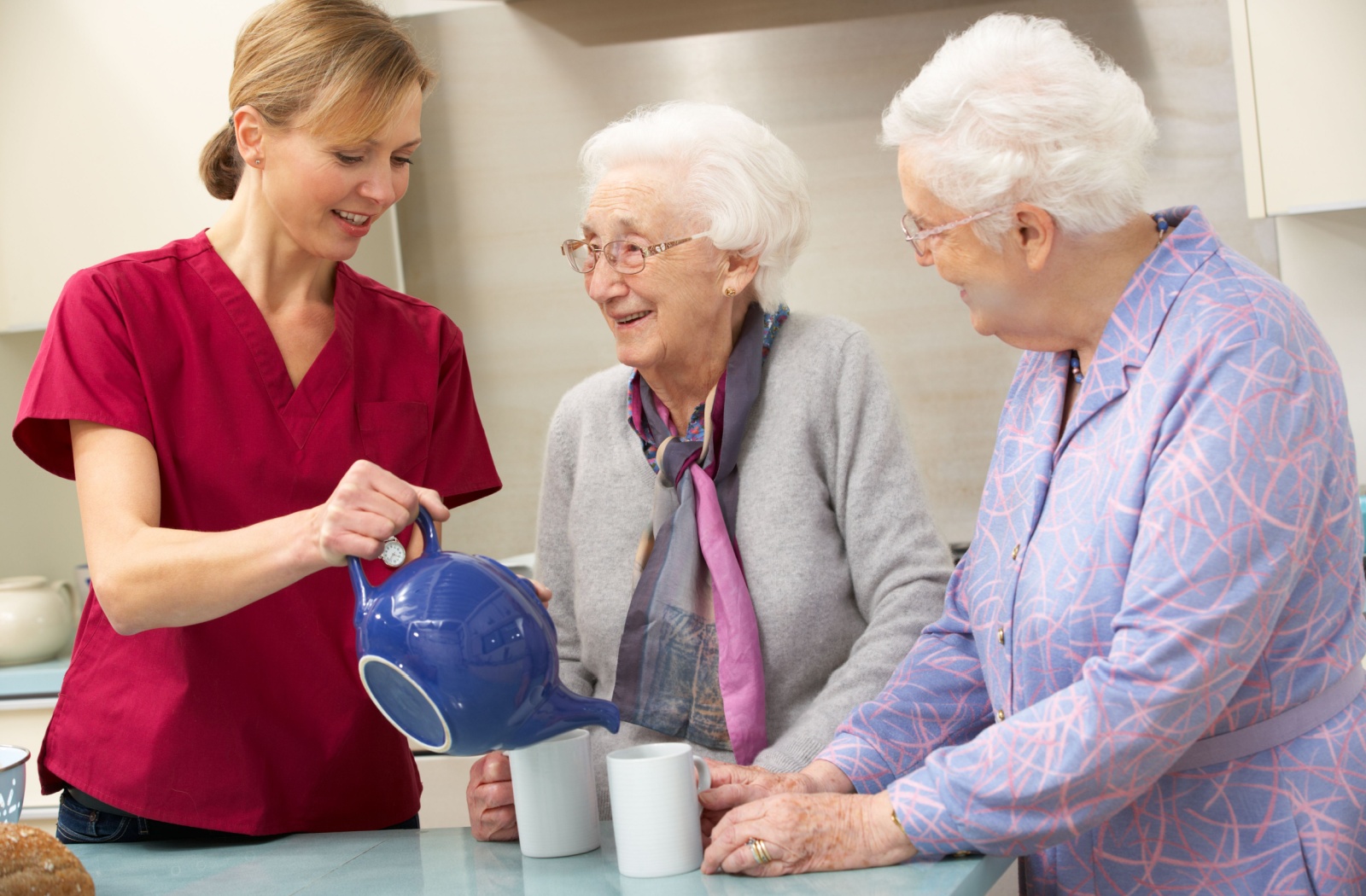Advanced Memory Support Solutions Offered with Alzheimers Care Charlotte
Creating a Safe and Encouraging Atmosphere for Alzheimer's Care
The production of a encouraging and risk-free environment for people with Alzheimer's is vital in enhancing their lifestyle. This involves not just physical adaptations within the home, such as decreasing threats and integrating acquainted elements, yet likewise the execution of structured regimens and significant tasks that deal with their cognitive demands. Furthermore, understanding the mental and psychological dimensions of care can considerably influence their sense of protection and connection. Checking out these complex approaches can expose critical insights into reliable caregiving strategies that may transform the everyday experiences of both caretakers and people.
Comprehending Alzheimer's Needs
Regularly, individuals with Alzheimer's illness display a series of requirements that need tailored techniques to care. As the condition advances, cognitive decrease materializes in different means, influencing memory, thinking, and even the capability to do everyday activities. Caregivers must acknowledge these advancing demands to supply proper support and ensure a better of life for those influenced.
One critical facet of understanding Alzheimer's demands is recognizing the importance of regular and experience. Individuals frequently locate convenience in recognized patterns, which can decrease anxiety and complication. Caregivers need to make every effort to produce structured day-to-day routines that incorporate meaningful activities lined up with the person's passions and capabilities.
Additionally, efficient interaction is extremely important. People with Alzheimer's might battle to reveal themselves or comprehend intricate language. Caretakers need to utilize basic, clear language, use non-verbal cues, and method active paying attention to foster understanding and link.
Finally, social and emotional demands can not be ignored. Providing chances for social interaction and keeping relationships can significantly improve psychological health. Caretakers ought to encourage involvement in community tasks or family celebrations, promoting a sense of belonging and function. Understanding these diverse needs is essential for producing an encouraging treatment environment.
Designing a Safe Home
Producing a safe home for individuals with Alzheimer's illness is necessary to decreasing threats and advertising independence. The layout of the space need to focus on safety while enabling individual convenience. Initially, eliminate potential hazards such as loosened carpets, sharp objects, and clutter, which can cause falls or accidents. Make certain that paths are well-lit and clear, as proper illumination lowers disorientation and improves movement.
Including flexible attributes is also important. Set up grab bars in shower rooms and near staircases, and take into consideration using non-slip floor coverings in wet locations. Furthermore, utilizing different colors for wall surfaces and floors can help in identifying spaces, assisting to reduce complication.
Familiarity is necessary for individuals with Alzheimer's. Customizing the atmosphere with familiar items and pictures can reinforce a feeling of belonging and security - Alzheimers Care Charlotte. It is likewise advantageous to have actually a designated area for day-to-day activities, such as reading or crafting, which can offer structure to their day
Finally, carrying out a secure outside area enables safe exploration while getting in touch with nature. By attentively creating the home environment, caregivers can substantially boost the high quality of life for people coping with Alzheimer's condition.
Enhancing Communication Skills

Non-verbal interaction, consisting of face expressions, motions, and touch, plays a crucial role in conveying compassion and understanding. Maintaining eye get in touch with and a tranquil temperament can improve the comfort degree of the person, promoting a sense of safety and security.
In addition, it is essential to practice energetic listening. This entails being completely present, revealing persistence, and allowing the individual to reveal themselves without disruption. Repetition might be required; caretakers must be prepared to revisit concerns or subjects, as individuals with Alzheimer's might have a hard time with memory recall.
Furthermore, utilizing visual help or cues, such as photos or familiar items, can help with recognition and interaction. Ultimately, improving communication skills is concerning building trust fund and creating an atmosphere where people feel listened to, valued, and comprehended, thereby enhancing their lifestyle.
Motivating Social Communication
Fostering meaningful social interactions can greatly improve the health of individuals with Alzheimer's illness. Involving with others not only aids combat feelings of seclusion but likewise promotes useful source cognitive function and emotional health and wellness. Structured social tasks, such as group arts, games and crafts, or songs treatment, create opportunities for residents to get in touch with peers and caretakers, which can lead to improved state of mind and minimized anxiety.
Creating a welcoming environment that urges socialization is important. This can be attained by setting up common rooms that assist in communication, such as comfy seating areas or activity rooms. Furthermore, integrating acquainted and culturally pertinent activities can trigger memories and encourage participation, allowing individuals with Alzheimer's to feel more connected to their past experiences.
Moreover, caretakers ought to be trained to recognize and advertise social interaction amongst homeowners. By prioritizing social interaction, we can significantly improve the lives of those living with Alzheimer's, promoting a feeling of neighborhood and belonging.
Supporting Caretaker Well-being

To sustain caregivers, companies ought to offer routine training and instructional resources to enhance their understanding of Alzheimer's illness and caregiving strategies. Providing access to break treatment solutions permits caretakers to take required breaks, lowering stress and fatigue - Alzheimers Care Charlotte. Furthermore, promoting an area with support system can help with emotional sharing and the exchange of useful recommendations amongst caretakers, creating a network of mutual support
Mental health and wellness resources, such as counseling services, can likewise be crucial in resolving the psychological toll caregiving can take. By focusing on caretaker health, we develop a more lasting caregiving atmosphere that not only benefits the caregivers themselves but also enhances the overall quality of care obtained by people with Alzheimer's. Inevitably, sustaining caregivers is a vital component in promoting a effective and thoughtful treatment setup.
Final Thought
To conclude, the creation of a secure and encouraging environment for people with Alzheimer's is necessary to boosting their top quality of life. By prioritizing security with thoughtful design, cultivating psychological wellness with familiar components, and advertising interaction through structured regimens, caregivers can substantially impact the total experience of those affected by this problem. Sustaining caretaker health is important, as it ultimately adds to a more caring and reliable care setting.
Repetition might be required; caretakers should be prepared to take another look at concerns or subjects, as individuals with Alzheimer's might battle with memory recall.
